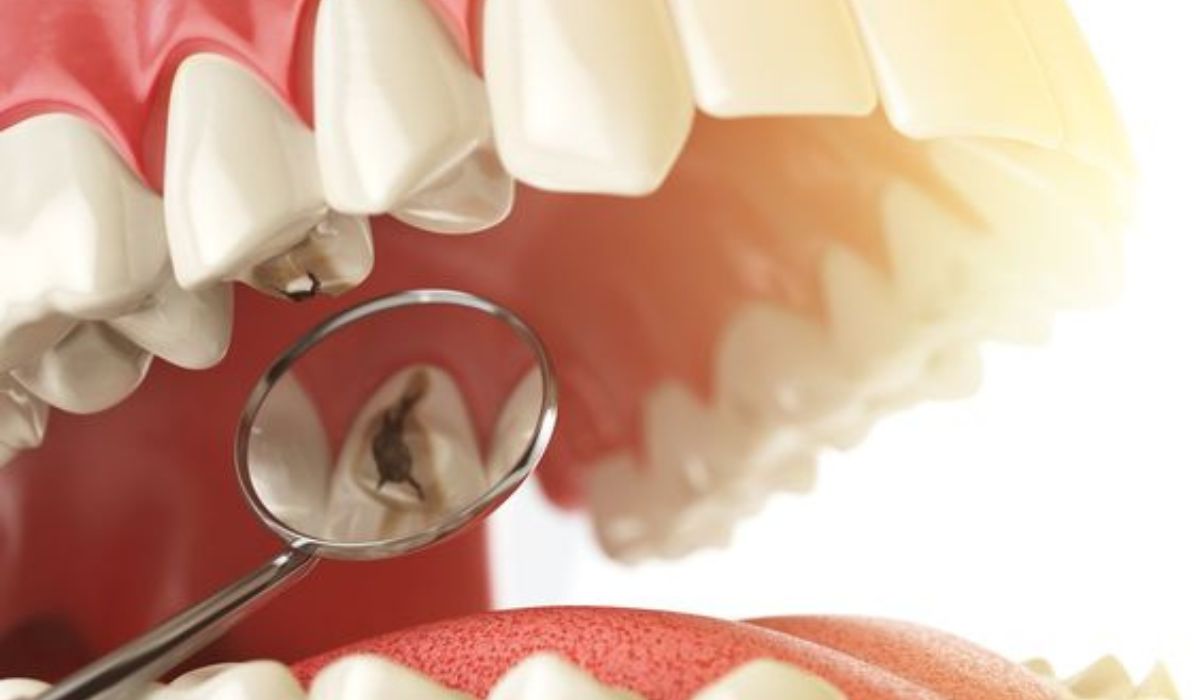A small hole or damage to the structure of a tooth’s enamel is known as a cavity, sometimes called dental caries or tooth decay. The demineralization of tooth enamel by oral bacteria’s acid production is to blame. Cavities are a common problem that can affect persons of any age and can progress to more serious dental problems if not treated.
The Anatomy of a Tooth
In order to grasp how cavities occur, it is essential to be familiar with the fundamentals of a tooth’s anatomy. Enamel is the outermost layer, and it serves to shield the dentin and pulp beneath it. The pulp is delicate because it has nerves and blood arteries in it.
Causes of Cavities
Multiple elements work together to cause cavities. The bacteria in your mouth need sugar and starch as fuel, which in turn causes them to make acids that wear away at your teeth’s enamel. Cavities can be caused by not brushing your teeth enough, having dry mouth, or even medical issues.
Signs and Symptoms
Knowing how to spot a cavity early on can aid in its diagnosis and treatment. Tooth sensitivity, toothache, holes or pits in the teeth, and discomfort when biting or chewing are common signs.
The Importance of Dental Checkups
Visits to the dentist twice a year are recommended for optimal oral health. Early detection of cavities by dentists helps avoid more extensive and costly procedures later on.
Preventing Cavities
Avoiding cavities requires proactive measures. Regular brushing and flossing, using fluoride toothpaste, and limiting sugary snacks are only some of the best ways to protect your teeth against decay.
The Role of Diet in Dental Health
Cavity prevention is greatly aided by eating a healthy, well-rounded diet. Teeth can be fortified and oral health improved by eating a diet high in calcium and phosphate.
Fluoride and Its Benefits
Fluoride is a naturally occurring mineral that helps prevent tooth decay. The tooth enamel is fortified, making it less vulnerable to acid attacks.
Sealing Out Cavities with Dental Sealants
Molar and premolar chewing surfaces can benefit from dental sealants, which are protective coatings placed to the teeth. They serve as a barrier, stopping food and bacteria from getting stuck in the teeth’s grooves.
Treating Cavities: Fillings and Root Canals
Cavities should be treated as soon as possible after detection. Restoration of damaged tooth structure and pain relief are common goals of dental fillings and root canals.
Cavities in Children
Cavities are more common in children since their teeth are still developing and they eat a lot of sugar. The dental health of children is especially dependent on their parents’ attention and instruction in good dental hygiene practices.
Caring for Your Dental Fillings
Taking care of dental fillings is essential if you want them to last a long time. Preventative measures include regular dental examinations and good oral hygiene.
Cavity-Fighting Oral Hygiene Tips
You can protect your teeth and gums from cavities by making them part of your regular oral hygiene routine.
Natural Remedies for Cavities
Oil pulling and the use of herbal mouthwashes are only two of the natural therapies proposed to improve dental health. While they can’t take the place of seeing a dentist regularly, they can help improve your oral health.
Wrapping Up
Cavities are a common dental problem with potentially serious implications. The key to protecting our teeth and keeping our smiles looking great is knowing what causes dental problems and how to avoid them.
Frequently Ask Questions (FAQs)
Can cavities heal on their own?
Cavities, alas, do not spontaneously heal. When enamel is broken, it cannot repair itself, therefore a cavity left untreated will worsen.
Are dental X-rays necessary for cavity detection?
For cavities between teeth or behind fillings, which may not be visible to the human eye, dental X-rays are absolutely necessary.
Is it possible to prevent cavities completely?
While it’s impossible to completely eliminate the risk of cavities, excellent oral hygiene and a balanced diet go a long way toward doing so.
Are baby teeth affected by cavities?
The loss of baby teeth at an early age due to decay might cause issues with the permanent teeth, so the answer is yes.
How often should I visit the dentist for checkups?
To keep your teeth in tip-top shape, see your dentist every six months for a cleaning and checkup.











